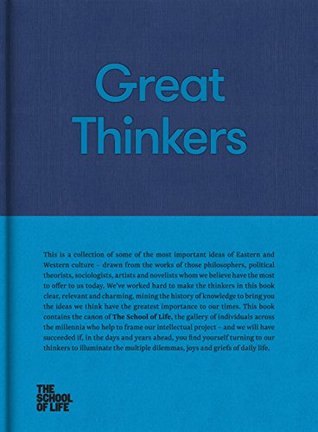More on this book
Community
Kindle Notes & Highlights
Read between
August 13 - August 23, 2020
wisdom (that is, the ideas we need) can come from multiple sources. From intuition but also from rationality, from science but also from revelation, from pagans but also from monks: he’s sympathetic to all of these, and he takes and uses whatever works, without caring where the ideas come from. That
I am not prepared to bash my brains for anything, not even for learning’s sake however precious it may be. From books all I seek is to give myself pleasure by an honourable pastime … If I come across difficult passages in my reading I never bite my nails over them: after making a charge or two I let them be … If one book wearies me I take up another.
‘Difficulty is a coin which the learned conjure with so as not to reveal the vanity of their studies and which human stupidity is keen to accept in payment.’
A virtuous, ordinary life, striving for wisdom but never far from folly, is achievement enough.
only naive (but perhaps rather touching) narcissism would lead someone at once to believe in a God who made the eternal laws of physics and then to imagine that this same God would take an interest in bending the rules of existence to improve his or her life in some way.
The free person is one conscious of the necessities that compel us all.
what leads people to religion isn’t just reason, but, far more importantly, emotion, belief, fear and tradition.
People stick with their beliefs because they like the rituals, the communal meals, the yearly traditions, the beautiful architecture, the music and the sonorous language read out in synagogue or church.
really important ideas may be in the hands of people you regard as beneath contempt.
‘There are causes worth dying for, but none worth killing for.’
one of the biggest evils of capitalism is not that there are corrupt people at the top – this is true in any human hierarchy – but that capitalist ideas teach all of us to be anxious, competitive, conformist, and politically complacent.
noncooperation with evil is as much a moral obligation as is cooperation with good.’
‘the veil of ignorance’, and through it Rawls asks us to imagine ourselves in a conscious, intelligent state before our own birth, but without any knowledge of what circumstances we were going to be born into; our futures shrouded by a veil of ignorance. Standing high above the planet, we wouldn’t know what sort of parents we’d have, what our neighbourhoods would be like, how the schools would perform, what the local hospital could do for us, how the police and judicial systems might treat us and so on … The question that Rawls asks us all to contemplate is: if we knew nothing about where we’d
...more
To be able to feel ambivalent about someone is, for Kleinians, an enormous psychological achievement and the first marker on the path to genuine maturity.
The uniform of the Chanel dress – or something less costly inspired by it – stresses a range of admirable virtues: the idea that you can be efficient, organised, serious, and in control – without becoming puritanical or dour. Such clothes stress the long term, they hint that we should care about things that last, and not chop and change our enthusiasms at every turn. They argue that elegance is a key concern in a crowded and busy world: it means efficiency without loss of grace.
Coco wanted her scent to summon up associations of a particular kind of person – confident, strong, attractive and independent.
A classic isn’t just something that is famous or distinctive from a past era. It’s something that continues to be relevant and useful outside of the specific time it was first made.
We spend much of our life working to reach some kind of better place: to have a nicer house, to buy better things, perhaps to move to a different country. We are often down on average things and positive about the exotic: a meal from Panama with Japanese infusions, a holiday in Tbilisi. It is normal to feel that the exciting things are not where we are. Andy Warhol aims to remedy this by getting us to look again at things in everyday life.
True modesty comes from confidence. Modesty is a lack of anxiety about being ignored.
Remembering that everyone is more easily confused than they pretend to be should be a basis for the reform of architecture, hotels, street design, websites, car manufacturing, phone companies, and writing books.
No one should be outside the circle of sympathy and forgiveness.


